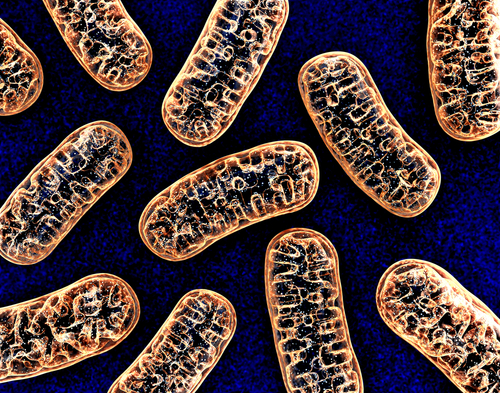Correcting Precise RNA Alterations May Restore Protein Production in MERRF, Study Suggests

Restoring a missing transfer RNA (tRNA) modification improved protein production and stability in mitochondria — the cell’s power plants — in a patient with myoclonic epilepsy with ragged red fibers (MERRF), according to new research.
The study, “RNA modification landscape of the human mitochondrial tRNALys regulates protein synthesis,” was published in the journal Nature Communications.
tRNAs play a key role in decoding messenger RNA sequences — derived from DNA — into the corresponding amino acids, which are the building blocks of proteins. Chemical modification of individual tRNAs is key in this process.
Mitochondria have their own type of DNA, which may generate 22 different tRNAs, part of the machinery involved in the production of mitochondrial proteins.
Mutations in mitochondrial DNA disrupt energy production within the cell and are the most common cause of mitochondrial disorders. Although different mutations are known to lead to distinct clinical symptoms, the precise molecular basis of disease development is still little understood.
Researchers lack information on the link between primary genetic mutations in mitochondria and their impact on tRNAs and their chemical modifications. Technological limitations are among the factors hampering attempts to better understand this association.
Researchers from Finland’s University of Helsinki and The University of Chicago aimed to address this gap using next-generation RNA sequencing to study the entire pool of mitochondrial tRNAs with a single nucleotide resolution, as noted in a press release. Nucleotides are the building blocks of DNA and RNA.
Such an approach enabled the first assessment of the amount and methylation — the addition of a methyl chemical — of all mitochondrial tRNAs in MERRF. This progressive, multi-system mitochondrial disease is caused by inherited mitochondrial tRNA mutations.
Using skeletal muscle biopsies, the results showed that methylation in a specific spot of mitochondrial tRNA was missing in a patient carrying a DNA mutation associated with MERRF. This alteration lowered tRNA abundance and had marked effects on mitochondrial protein production.
Then, the team found that restoring the modification by overexpressing an enzyme known as TRMT61B in cultured cells was beneficial, as it increased production and improved stability of newly generated mitochondrial proteins. This approach also prevented the formation of proteins with abnormal size.
“Collectively, our findings provide novel insight into the regulation of mitochondrial tRNAs and reveal greater complexity to the molecular pathogenesis of MERRF,” the scientists said. “The application of new RNA sequencing approaches to [mitochondria] should provide insight into these mechanisms, as well as their contributions to human disease.”






